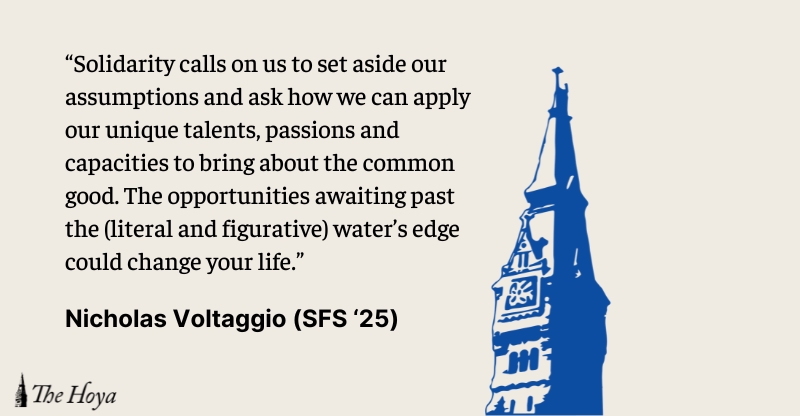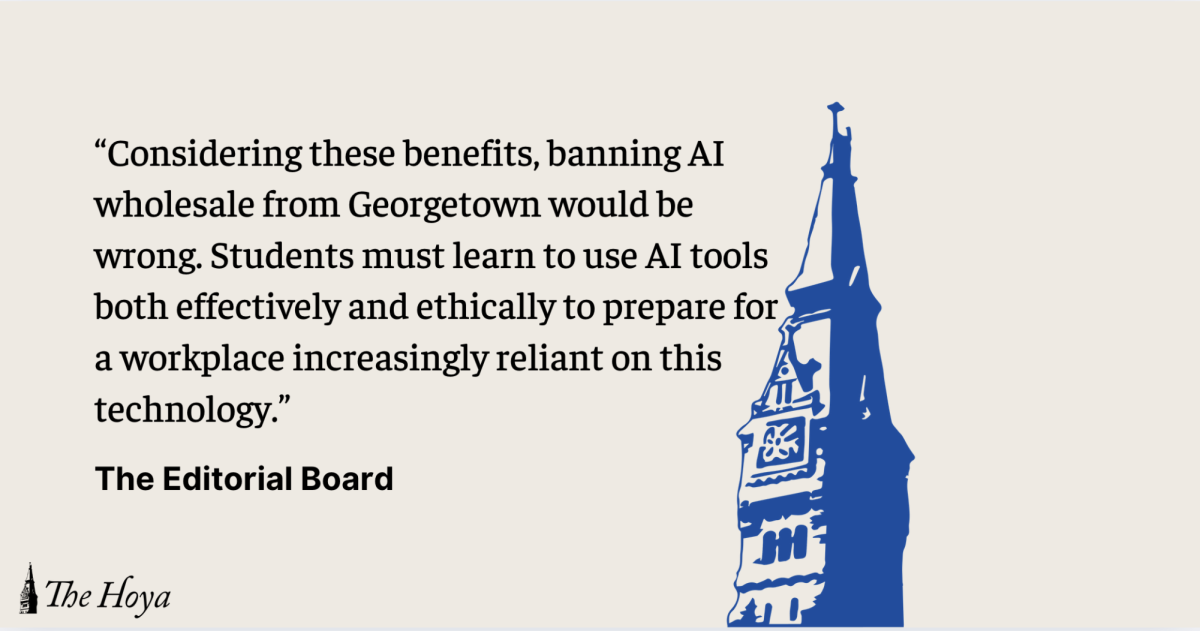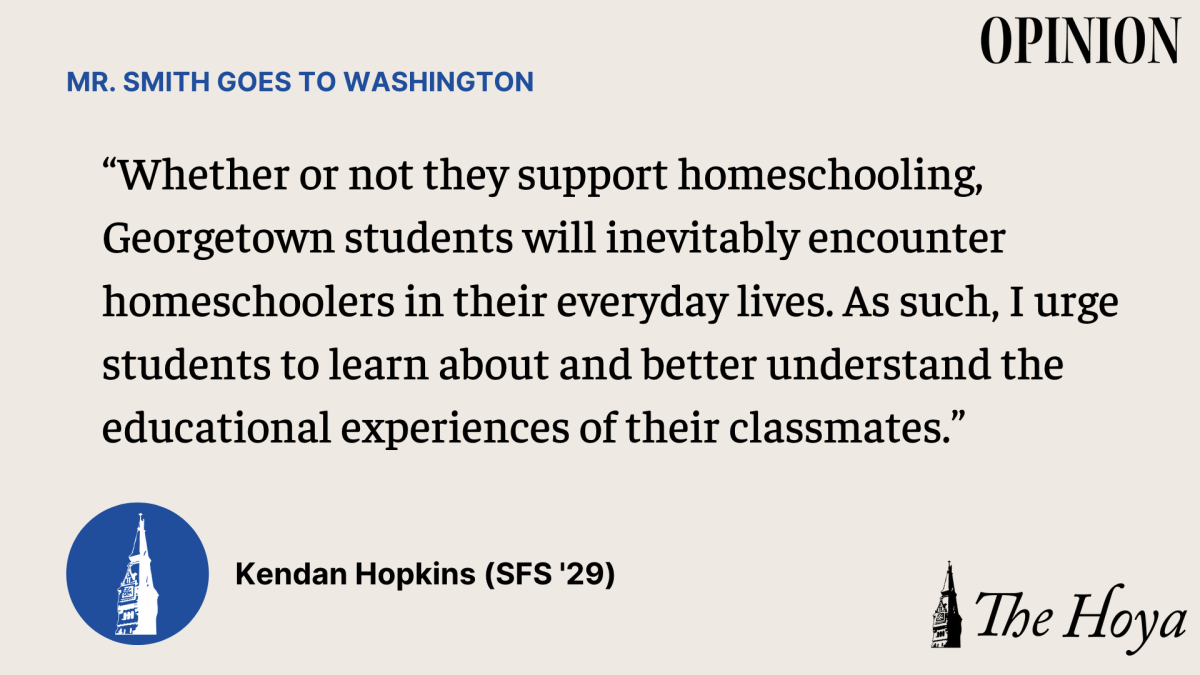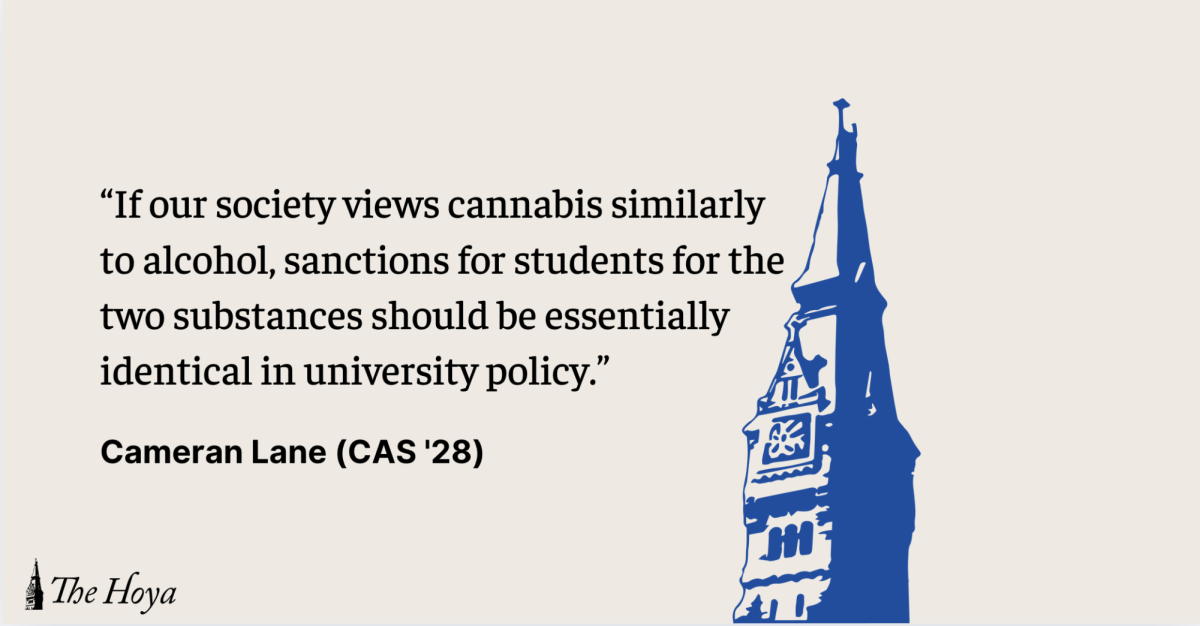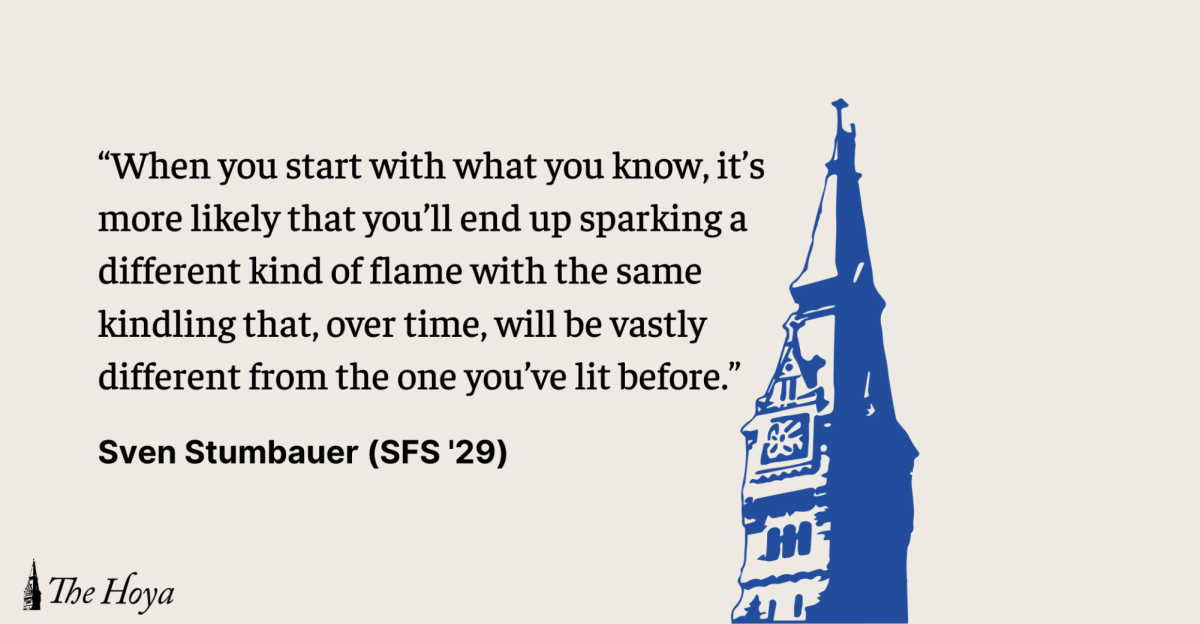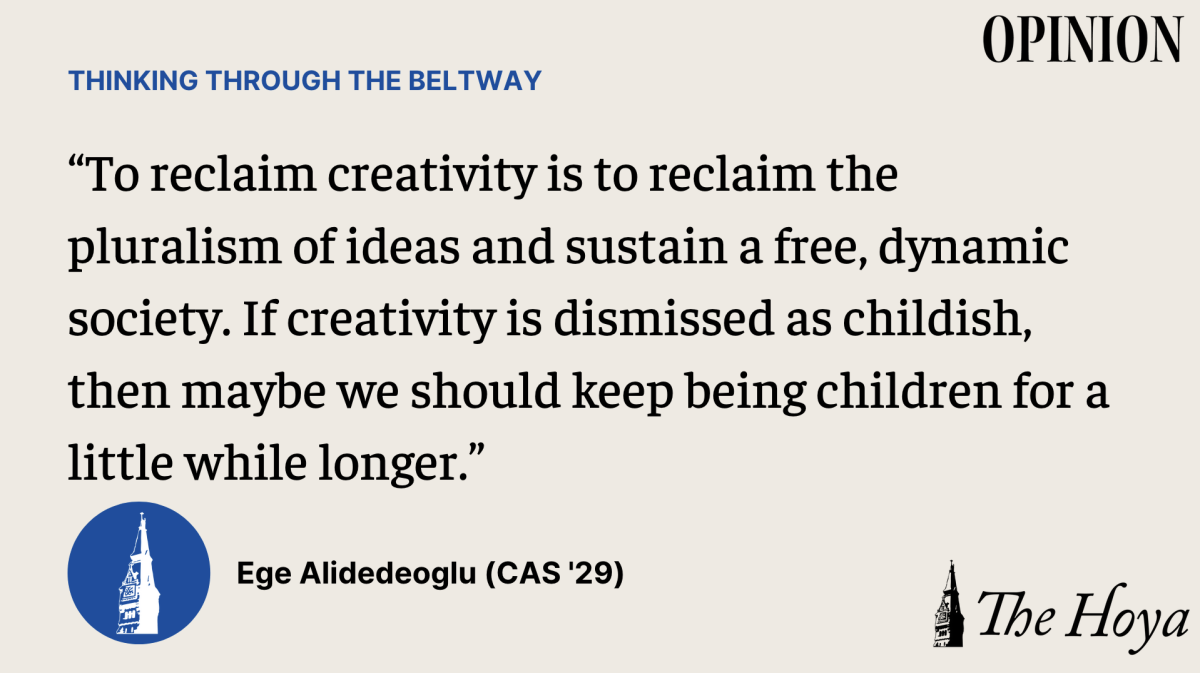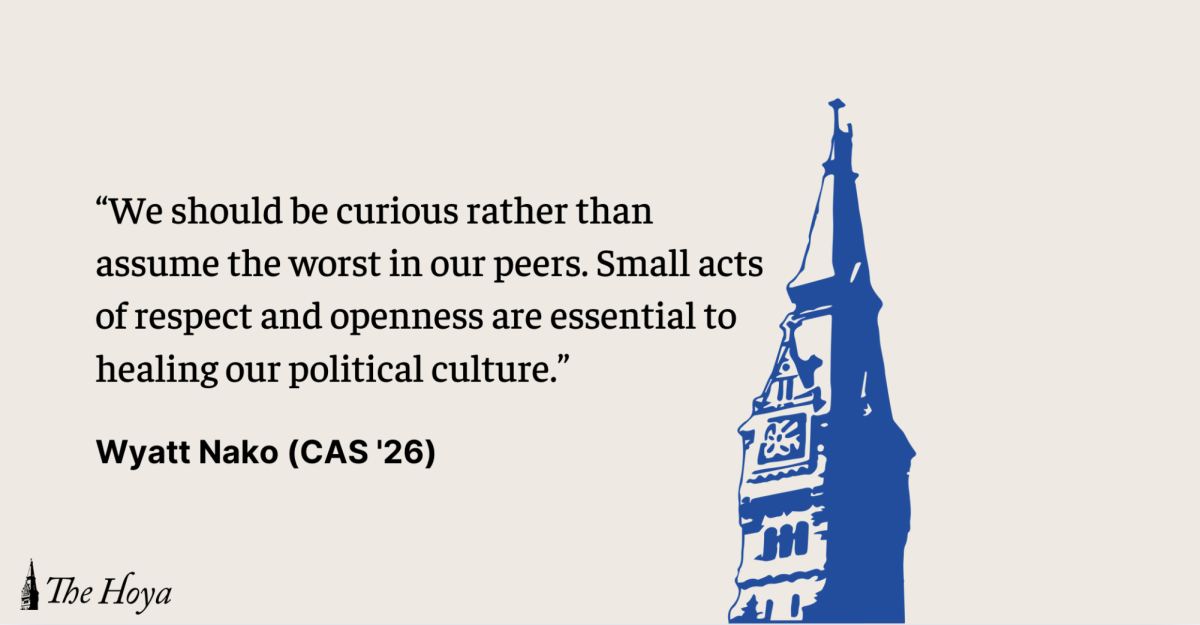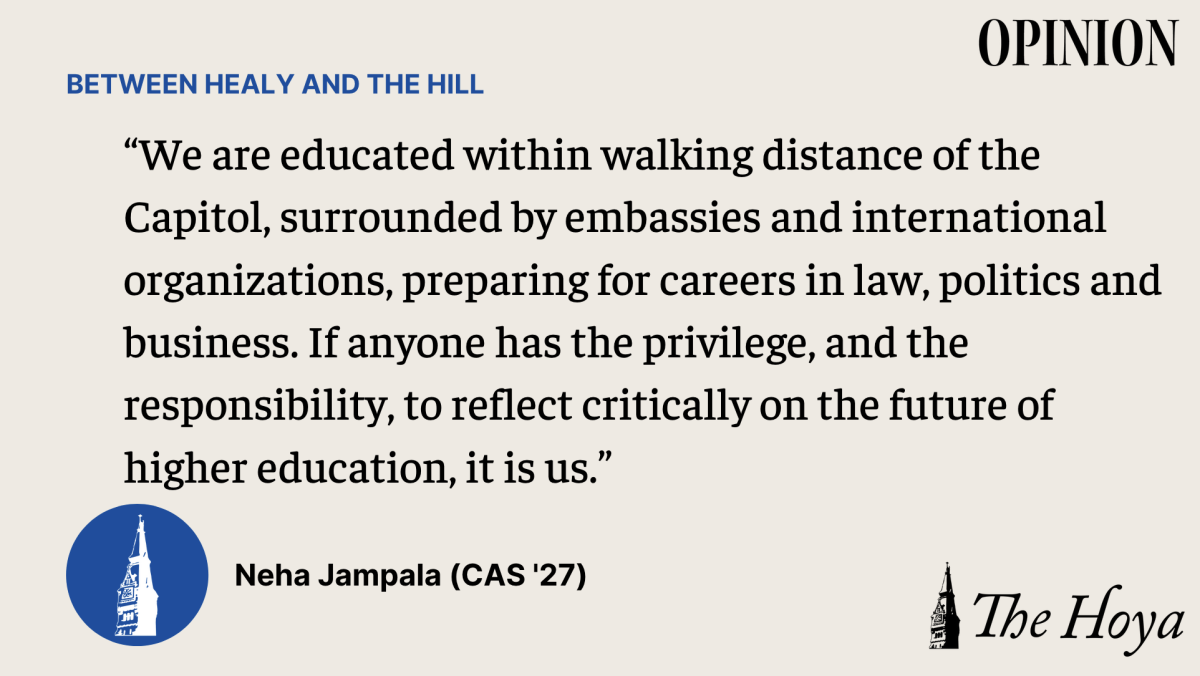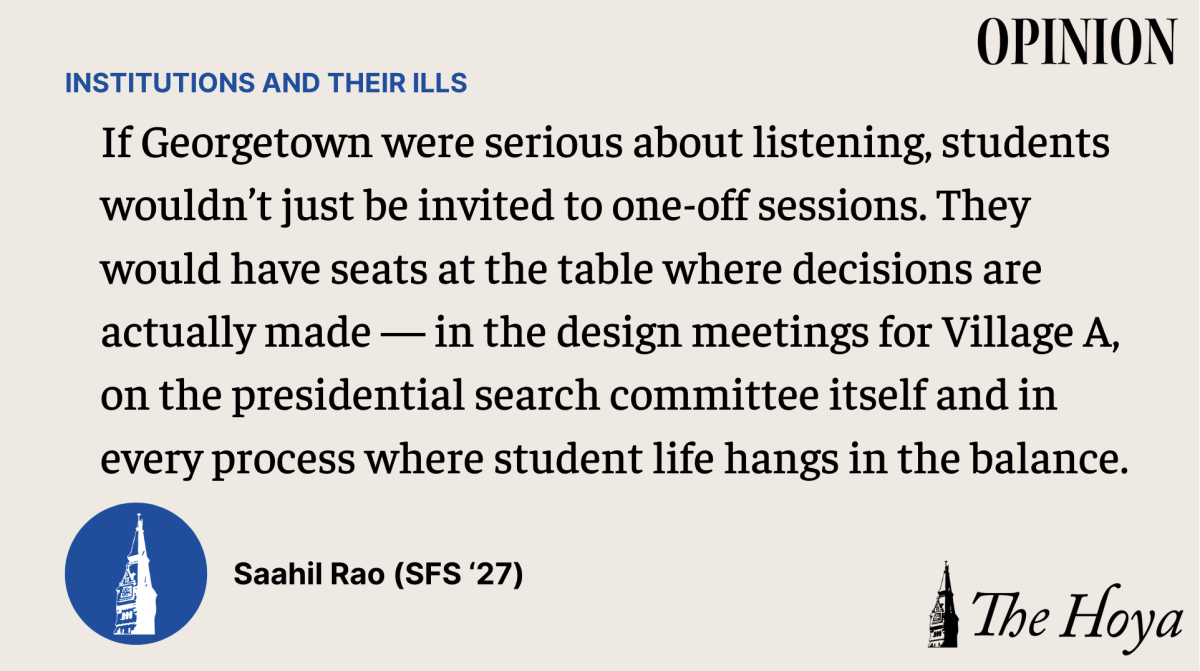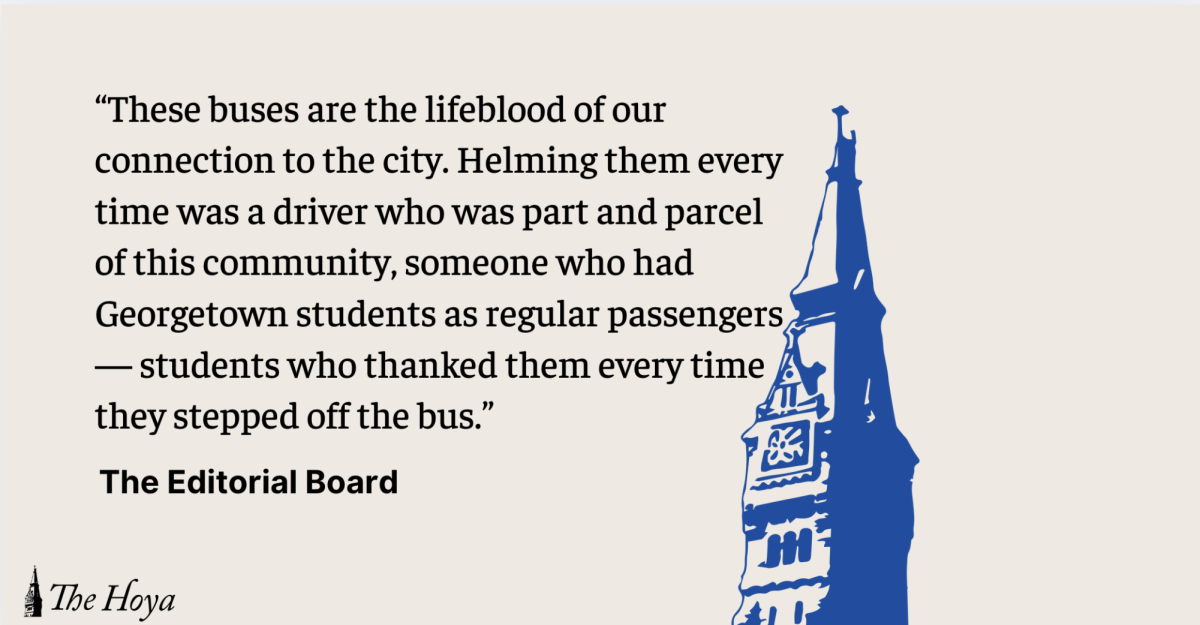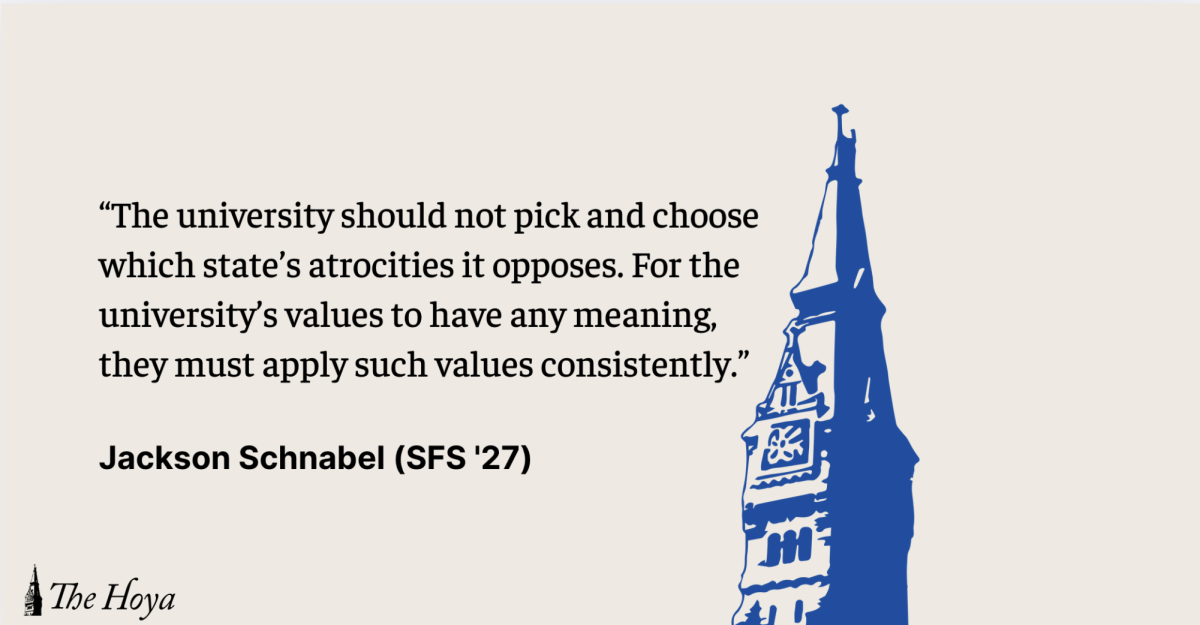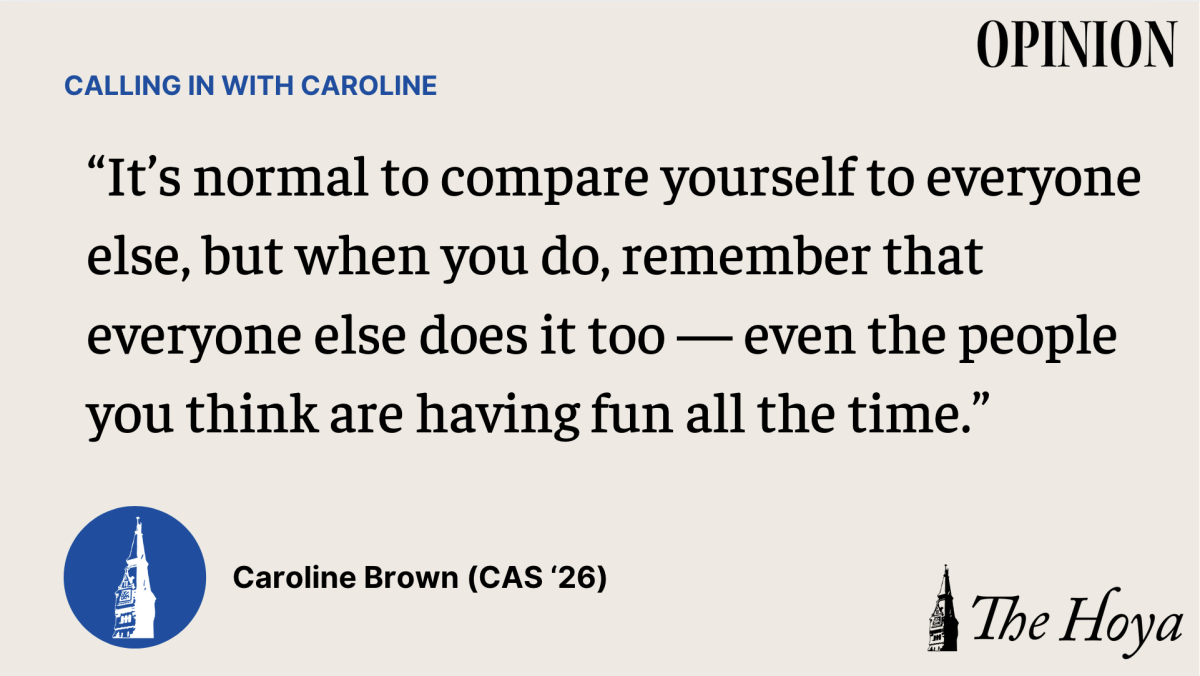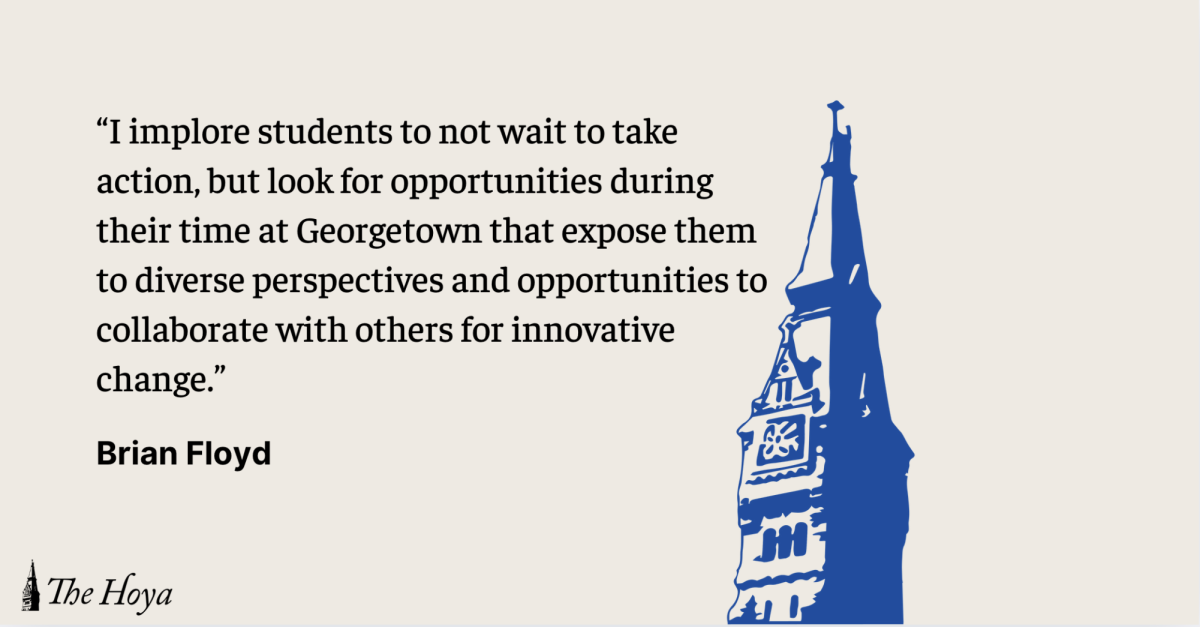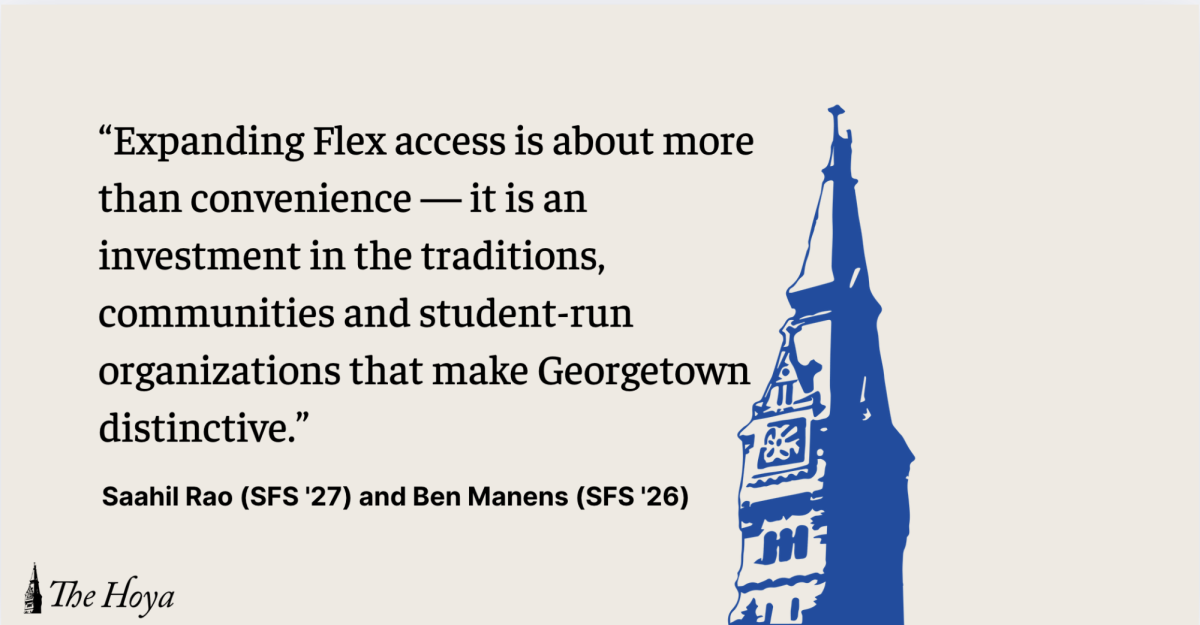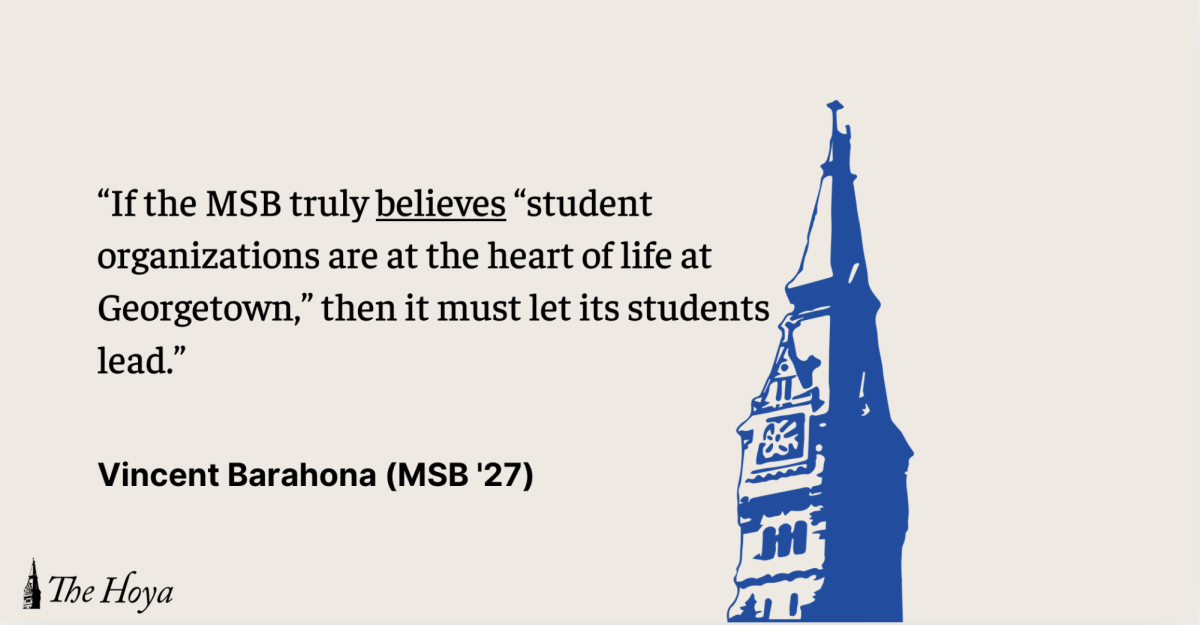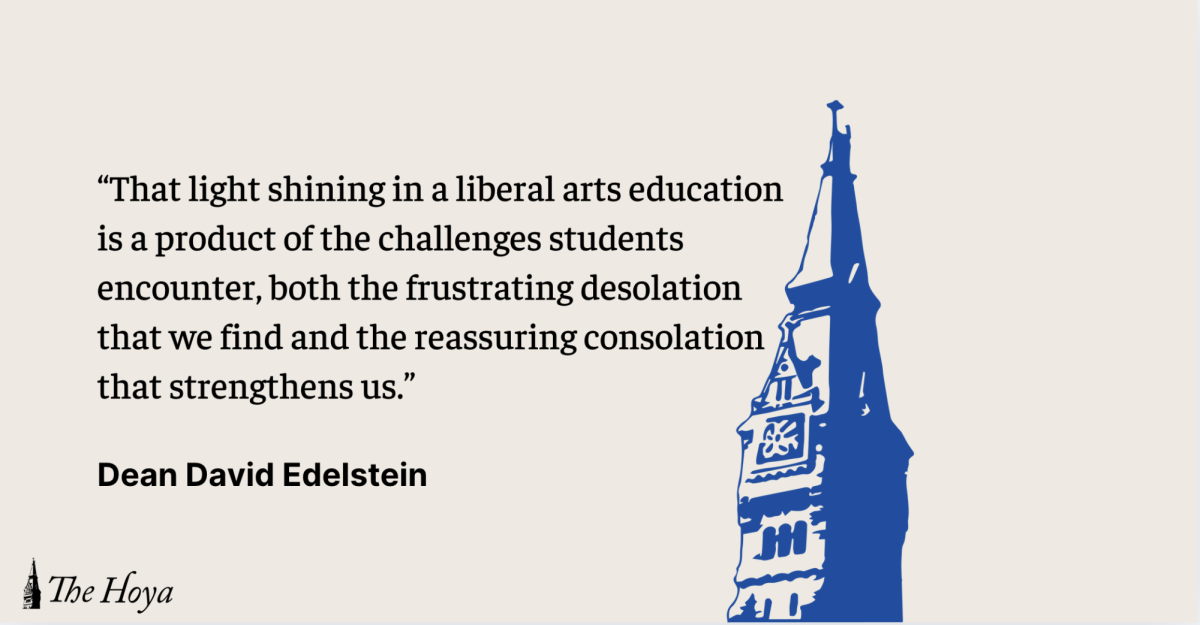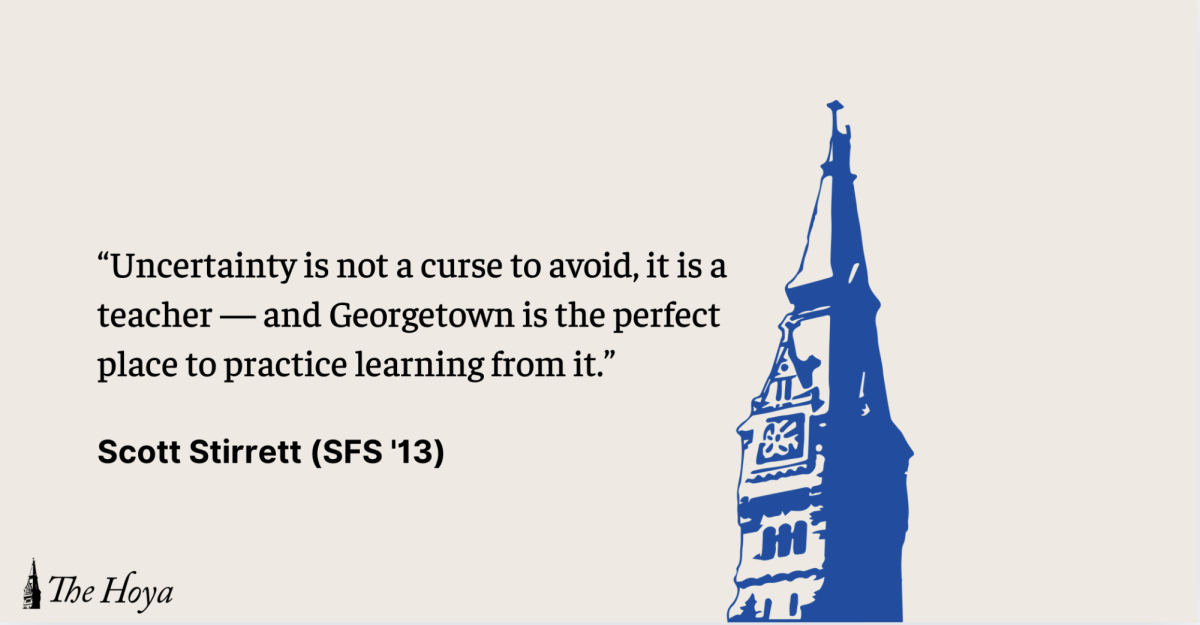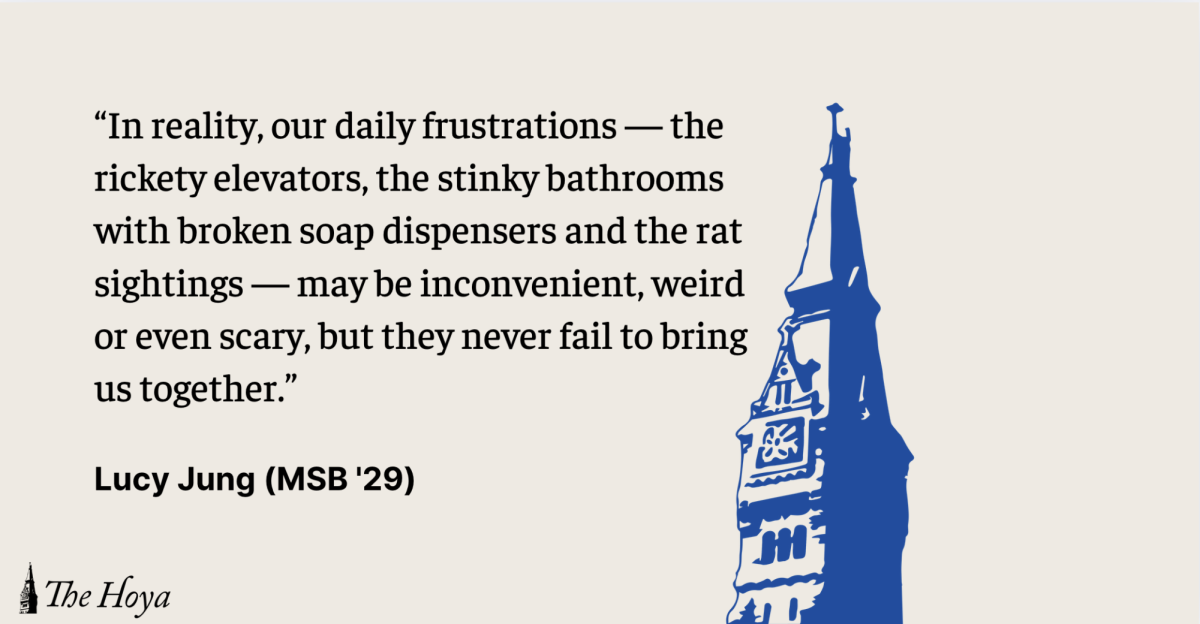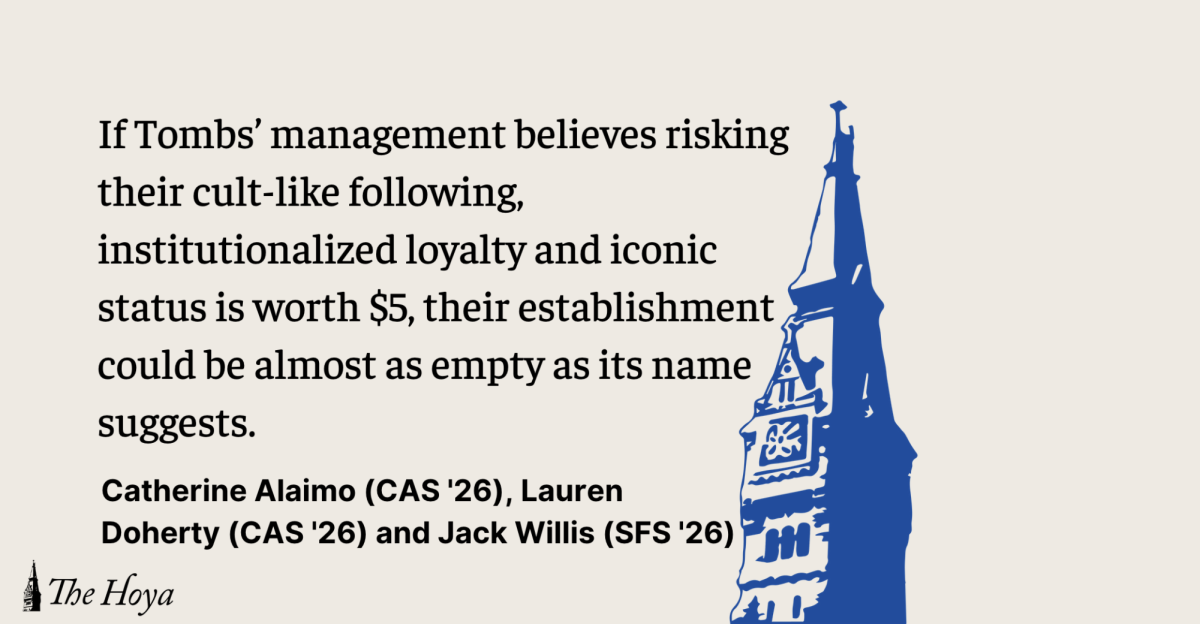When I made the decision to come to Georgetown University intent on studying international political economy, I didn’t quite expect that my weeks would include curating children’s books, ordering fidget toys or picking up Sour Patch Kids to pass out as rewards to elementary schoolers. Yet that’s where I’ve landed in my fourth semester of work as a site coordinator and tutor for D.C. Reads, a program within Georgetown’s Center for Social Justice Research, Teaching & Service (CSJ) that offers one-on-one literacy tutoring to students at historically under-resourced elementary schools in Washington, D.C.’s Wards 7 and 8, east of the Anacostia River.
For me, tutoring at Plummer Elementary School has represented a welcome twice-weekly disruption to days otherwise circumscribed by the norms and expectations of the Georgetown bubble. In an instant, worries about class schedules, accolades, insecurities and tightly packed Google Calendars become secondary. Liberated from those structures, we can embrace the principle of solidarity.
Solidarity rejects the hierarchy inherent in the oft-referenced “savior complex” in which a person believes they are responsible for “uplifting” others with fewer resources. Instead, it recognizes that there is nothing about the person engaging in service that renders them superior to the community in which the service takes place. The CSJ’s formalized vision, which debuted this school year, attests that its work centers on “the redistribution of resources,” among other values. And no, this isn’t a Marxist proclamation or a formulation for tax policy — it’s actually much simpler. It’s a recipe for envisioning how we can, with humility, direct the opportunities presented to us toward the common good.
Approaching service with the CSJ or another Georgetown service organization with a mindset of solidarity means recognizing oneself as an agent of resource redistribution, not a saint or martyr.
As Georgetown students, our time and energy are valuable and available resources that we can share with our partner communities. The CSJ offers us vans to travel to elementary schools and funds to procure books and supplies. Our access to these resources is in a sense coincidental — we did not ourselves earn them, but we have access to them through our university affiliation. Our agency and opportunity, then, lie in recognizing how we can serve as agents of redistribution.
The value of solidarity is intimately intertwined with Georgetown’s Jesuit values of “people for others” and “a faith that does justice.” For those of us involved in D.C. Reads, it means supporting our partner elementary schools on their terms and in their space. We maintain constant communication with school staff to make sure we are serving students in the best way we can. In letting our school partners take the lead, we must recognize the limits of our knowledge, a scary and perhaps counterintuitive acknowledgement in the competitive Hilltop setting. Through this practice, too, service and solidarity challenge us to embrace humility and flexibility.
My experience in D.C. Reads has shown me that service and solidarity demand the kind of flexibility that is required to get out of one’s comfort zone. Solidarity calls on us to set aside our assumptions and ask how we can apply our unique talents, passions and capacities to bring about the common good. The opportunities awaiting past the (literal and figurative) water’s edge could change your life.
The good news for those eager to engage is that Georgetown is brimming with opportunities to practice service and solidarity. We can all participate in this project of solidarity, recognizing the distinct opportunities available to us as students. Those opportunities can catch us off guard: If a flyer or social media post catches our eye on the way to class or walking in a dorm hallway, we should keep our minds and hearts open. We should let the joy of service surprise and excite us. By embracing humility, flexibility and solidarity, each of us can flourish as agents of redistribution — taking some of our own surplus, in whatever way that manifests itself, and pouring it into another’s cup.
So no, I can’t pretend that my high school self, upon acceptance to my top-choice college, envisioned a chapter characterized by prepping bags of art supplies and wrangling third graders in an elementary school cafeteria. But after joining D.C. Reads, I never looked back. I’m grateful that I reshaped my expectations for what my Georgetown years would look like. In a world in which we seek to control and predict so much, I encourage all Georgetown students to embrace surprises as invitations to solidarity.
Nicholas Voltaggio is a senior in the School of Foreign Service.


